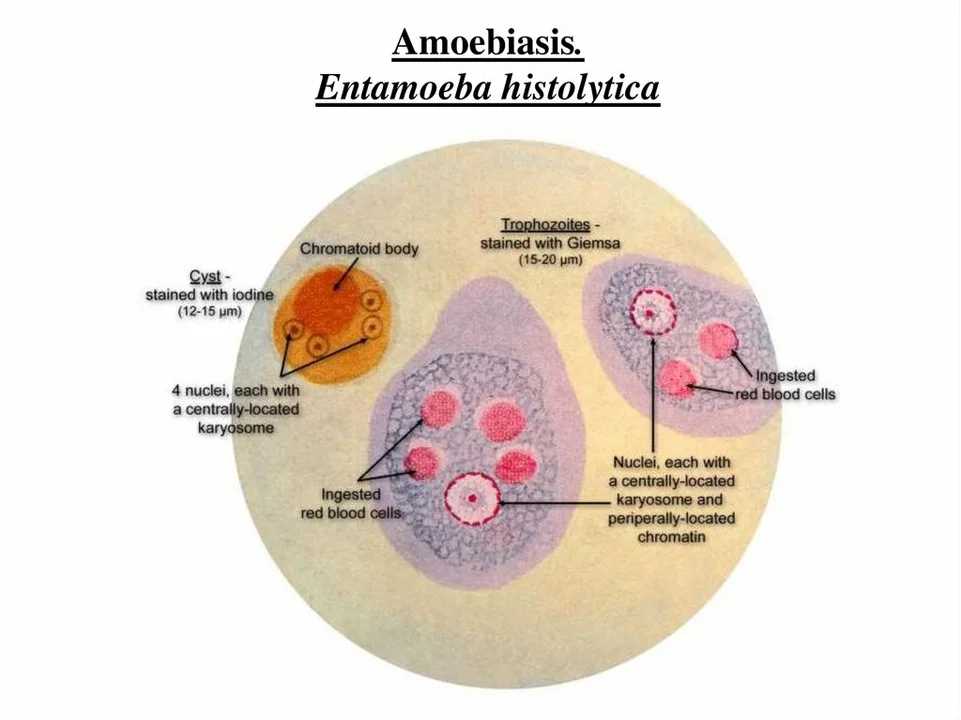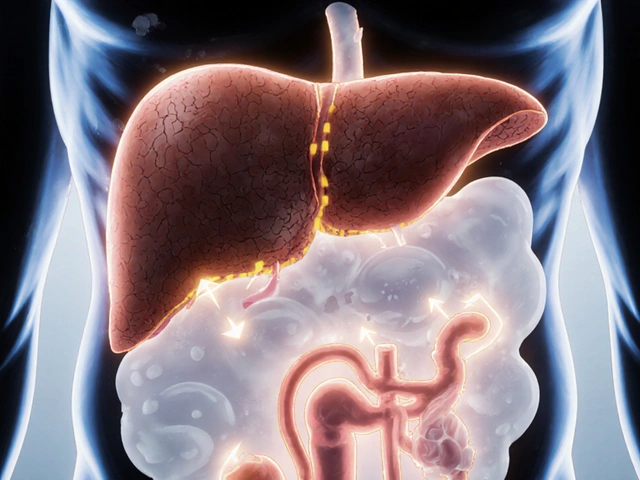Amebiasis
An intestinal infection caused by the parasite Entamoeba histolytica. It mainly affects the colon but can spread to the liver and other organs. Poor sanitation and contaminated water are the most common sources, but you can also catch it from close contact with an infected person. If you get sudden watery diarrhea, cramps, or bloody stools after travel or from a high-risk area, think about amebiasis and get tested.
Symptoms vary widely. Some people have no symptoms and still carry the parasite. Others get mild stomach upset, loose stools, and gas. More severe cases bring high fever, frequent bloody diarrhea, and severe abdominal pain. When the parasite reaches the liver it can cause pain under the right ribs, fever, and a tender, swollen liver. That situation needs urgent medical attention.
Diagnosing amebiasis relies on specific tests. Doctors commonly order stool tests to find parasite cysts or E. histolytica DNA. Serology and blood tests can help if the infection has spread to the liver. Imaging like ultrasound or CT may be needed for a suspected liver abscess. Quick, accurate testing matters because treatment differs from other causes of diarrhea.
Treatment follows a two-step approach. First, drugs such as metronidazole or tinidazole kill invasive amoebae in tissues. After that, a luminal agent like paromomycin clears cysts left behind in the gut to stop spread. If a liver abscess forms, your doctor may recommend drainage plus antibiotics. Always take the full course your clinician prescribes. Stopping early risks relapse and continued transmission.
Prevention is simple and practical. Drink only bottled or boiled water in risky places and avoid ice cubes from unknown sources. Skip raw salads and unpeeled fruits when sanitation is poor. Wash hands regularly with soap and water, especially after using the toilet and before preparing food. In homes with an infected person, clean toilets and surfaces often and avoid sharing utensils until treatment and follow-up stool tests confirm clearance.
Travelers should plan ahead. Get travel health advice, pack oral rehydration salts, and know where to find medical care abroad. If you use online pharmacies to buy travel medications, pick reputable sites that require prescriptions and show clear contact information.
See a doctor right away for fever, bloody diarrhea, dehydration, or severe pain. Also seek care if you are pregnant, older, very young, or have a weakened immune system. Timely care lowers the risk of complications like severe dehydration, liver abscess, or chronic infection.
Amebiasis is preventable and treatable. Recognize symptoms, get tested after exposure, follow prescribed treatment, and use straightforward hygiene measures. With the right steps, you can protect yourself and stop the spread.
Follow-up stool testing after treatment confirms the parasite is gone; ask your doctor when to test. There is no vaccine, so prevention is the main tool. People who handle food, work in daycare, or care for vulnerable patients should be extra careful and stay off work until cleared. Community measures like safe water systems and proper sewage disposal reduce risk across whole neighborhoods regularly.

Amebiasis and the Healthcare System: The Cost of Infection
As a blogger, I've recently delved into the topic of amebiasis and its impact on the healthcare system. Amebiasis is a parasitic infection that primarily affects the intestines, leading to diarrhea, abdominal pain, and other complications. It's a concerning public health issue because it puts a significant financial strain on our healthcare system. The cost of infection not only includes medical expenses for diagnosis and treatment but also the loss of productivity due to illness. It's crucial for us to raise awareness about this issue and work towards improving sanitation and access to clean water in order to prevent the spread of amebiasis.
Detail




